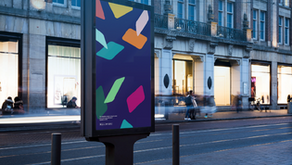top of page
Search


ÖAK publishes standardized metrics for newsletters and podcasts, marking a significant milestone in its reporting framework
Austria With 25 editorial newsletters and 10 podcasts, the Austrian Circulation Control (ÖAK) begins monthly reporting of the newly...
Feb 28, 2024


Survey: Publishers to Focus on Digital Subscriptions, Advertising Solutions in 2024
United States 2023 was a year filled with several media industry buzzwords: artificial intelligence, made-for-advertising websites and...
Dec 12, 2023


New DOOH Trust Indicator: Campaign Broadcast Time Slots
France The DOOH Trust label was launched in 2018 at the industry's request to evaluate and certify the distribution of DOOH campaigns...
Dec 12, 2023


New ABC Website Showcases Extensive Data and Assurance Services
United Kingdom We’re delighted to launch our brand new website, highlighting the wide range of data and assurance services available from...
Dec 5, 2023


Kantar Marketing Trends 2024
Sweden We reveal the 10 most significant marketing trends that we believe will have a significant impact on the market in the coming year...
Dec 5, 2023


4 Steps for Efficient Planning of an Outdoor Advertising Campaign
Romania In the dynamic world of OOH advertising, the right tools along with professionally measured performance results are key to...
Nov 27, 2023
IFABC News
bottom of page
